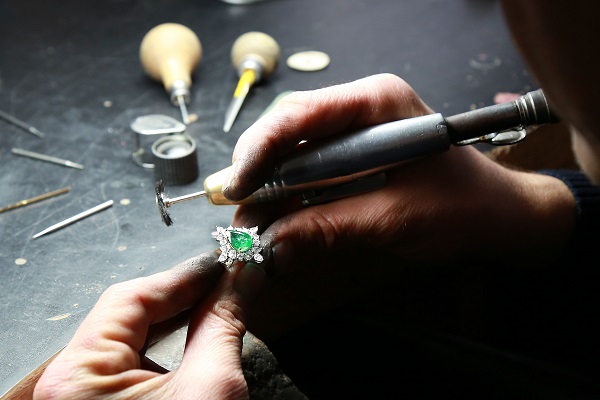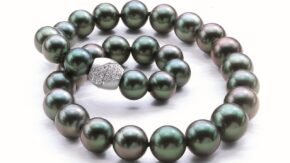RAPAPORT… More than 60 institutional investors have urged the jewelry
trade to implement more stringent control of supply chains in order to
eliminate human-rights abuses.
The organizations, members of the Investors Alliance for Human
Rights, last week expressed concerns about child and forced labor in the
mining industry, and urged jewelry manufacturers and retailers to conduct due
diligence in line with recognized standards. Many of the signatories are religious bodies
or Swiss pension funds.
“Precious metals and gems are often used to commemorate the
most sacred and momentous events in the human experience,” said Mark Regier,
vice president for stewardship investing at alliance members Everence Financial
and Praxis Mutual Funds. “As investors, we need to see greater action — including
improved standards and certifications — from the manufacturers and retailers in this
space.”
Mining can injure child workers, expose them to dangerous substances
such as mercury, and kill people when unstable pits collapse, the signatories
explained. Gold and diamond production has caused environmental damage that
threatens people’s health and access to water and food, while mining operations
have also displaced indigenous peoples, they continued. In addition, abusive
government forces and armed groups continue to benefit from the industry,
despite efforts such as the Kimberley Process, they added.
“Responsible management of global supply-chain risks is
material to investors,” the statement read. “Where businesses fail to respect
human rights in their own operations or in their supply chains, there is a risk
of expensive litigation and reputational harm.”
The investors acknowledged that some companies in the industry were
taking steps to source more responsibly, citing Tiffany & Co., Pandora,
Cartier, Signet Jewelers and Bulgari as examples. However, most fall short of standards,
the group claimed.
The alliance sent its statement directly to 32 companies it felt
did not meet responsible-sourcing requirements, requesting they improve supply-chain
checks. The group also criticized the Responsible Jewellery Council (RJC) for
not being in line with Organisation for Economic Cooperation and Development (OECD)
sourcing standards. Although the RJC announced last week that it was in the
process of aligning its due-diligence code for diamonds with OECD guidelines,
that change will not fully go into effect until 2021.
Human Rights Watch, a non-governmental organization that has campaigned for better standards in the industry, has acknowledged the RJC’s positive impact on jewelry companies’ practices, the council noted in a statement to Rapaport News Wednesday.
“We are committed to continuing that mission to drive
improvement in responsible behavior across the jewelry industry,” the RJC continued. “The [RJC] standards themselves are internationally recognized as robust and are
continually open to comprehensive and transparent review to ensure they
continue to advance the cause of responsibility in the industry.”
Image: A Jewelry manufacturer making a ring. (Kozgunaydin/Shutterstock)



